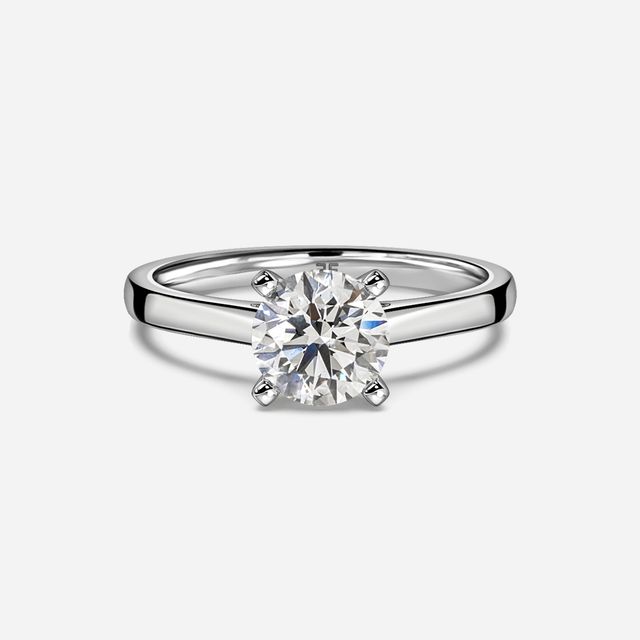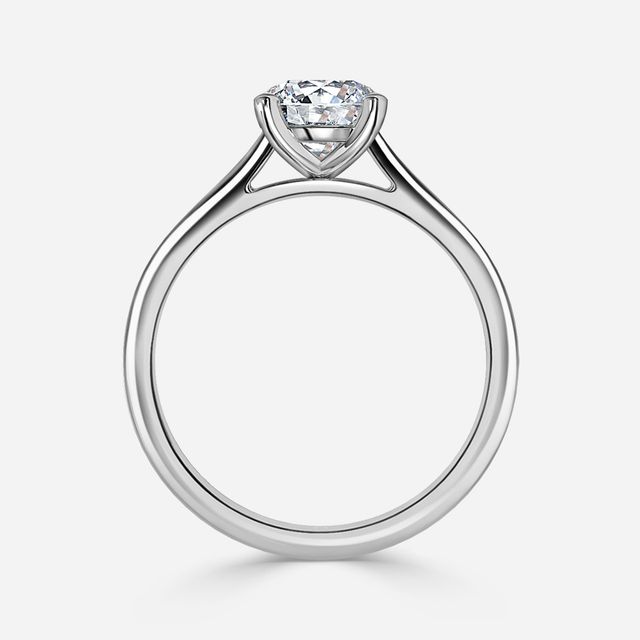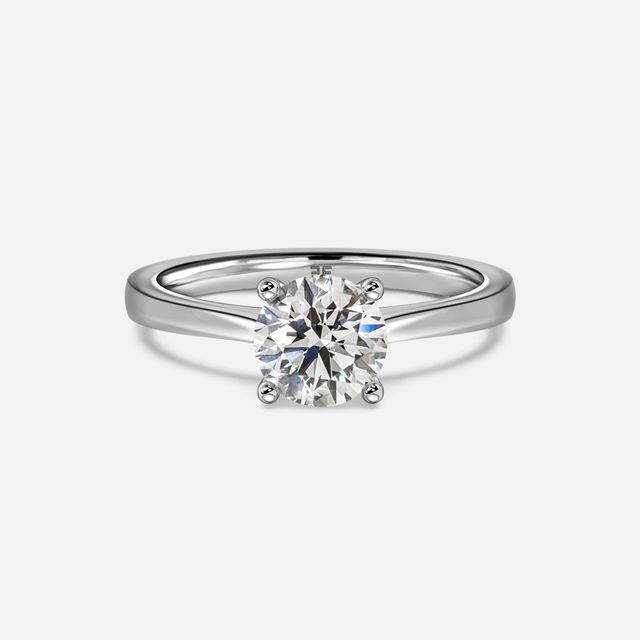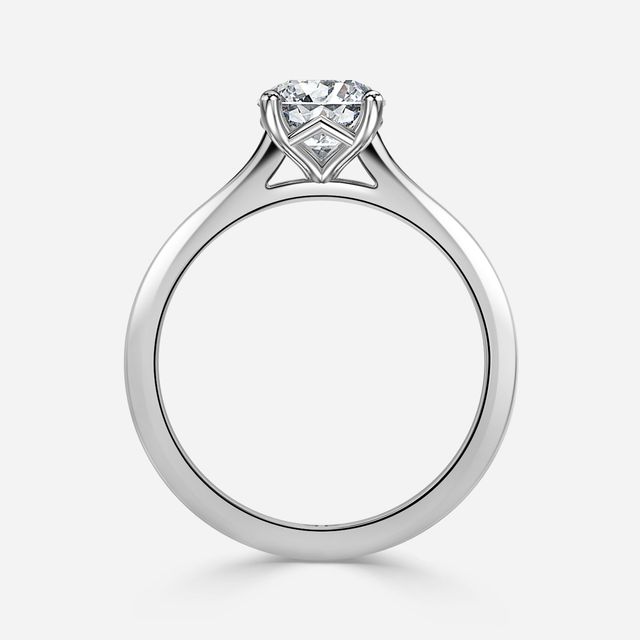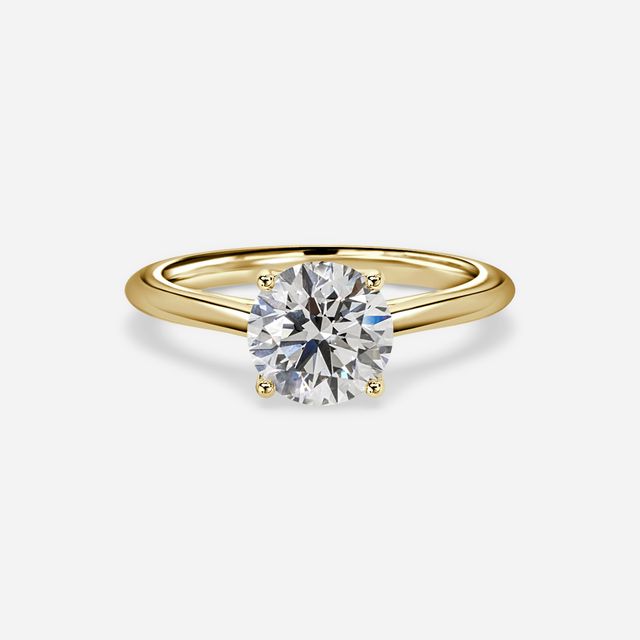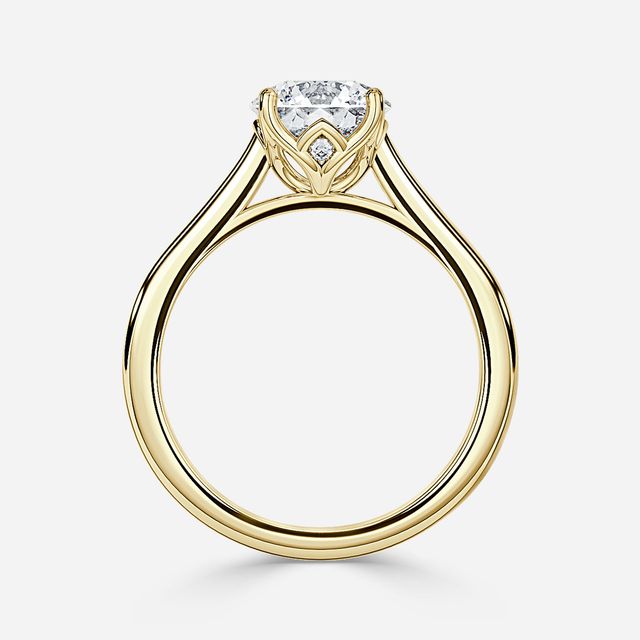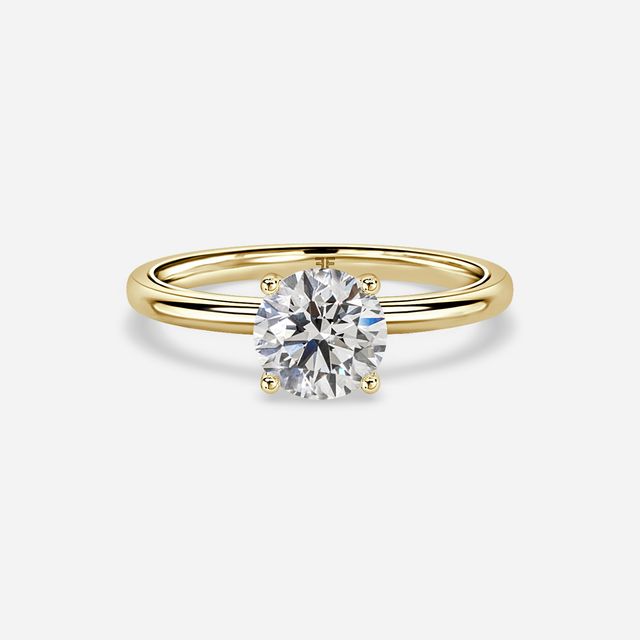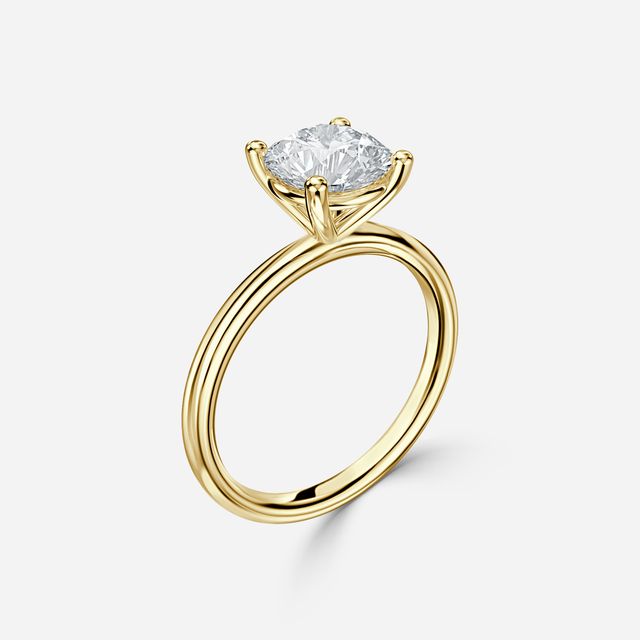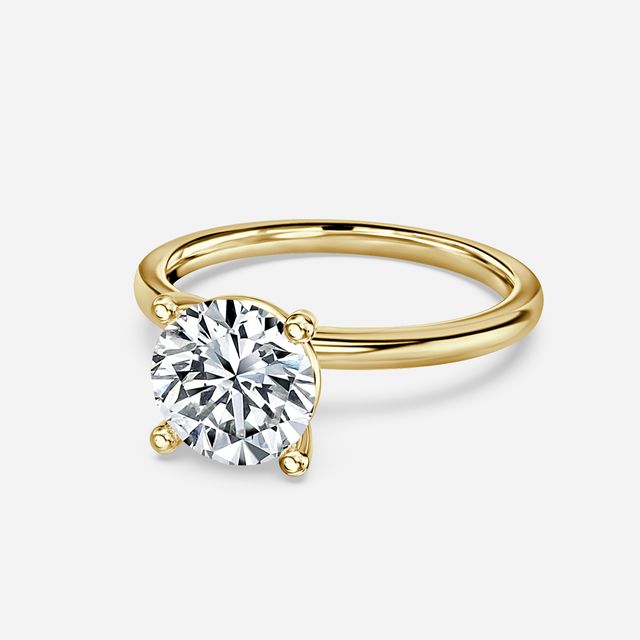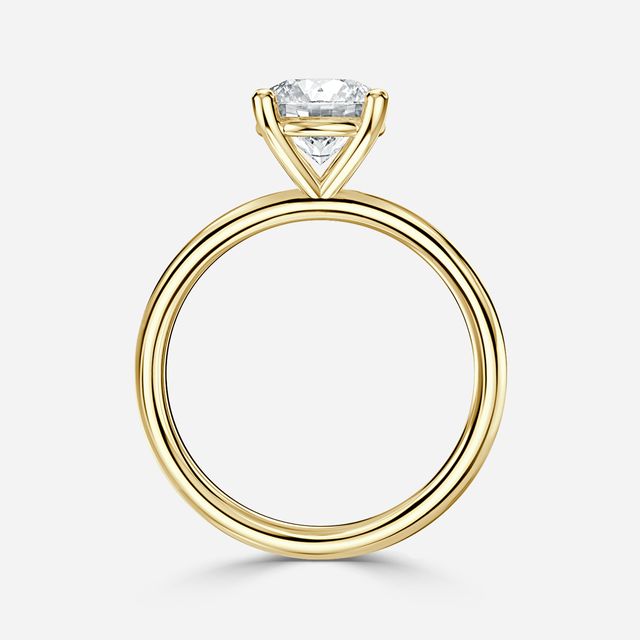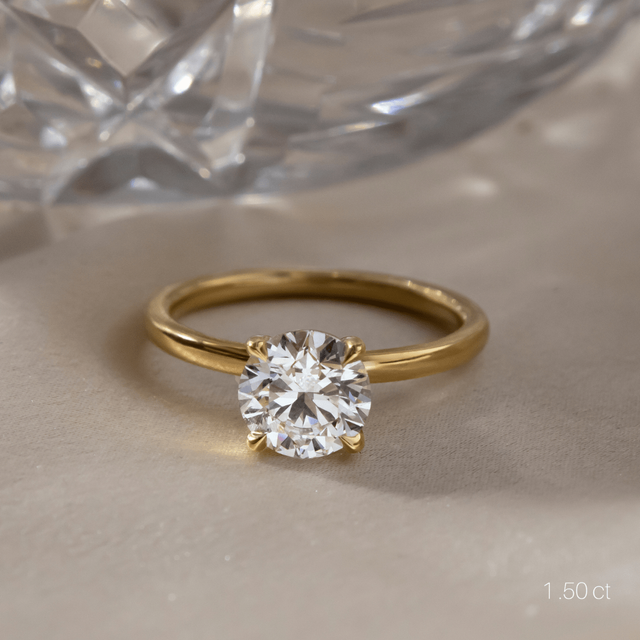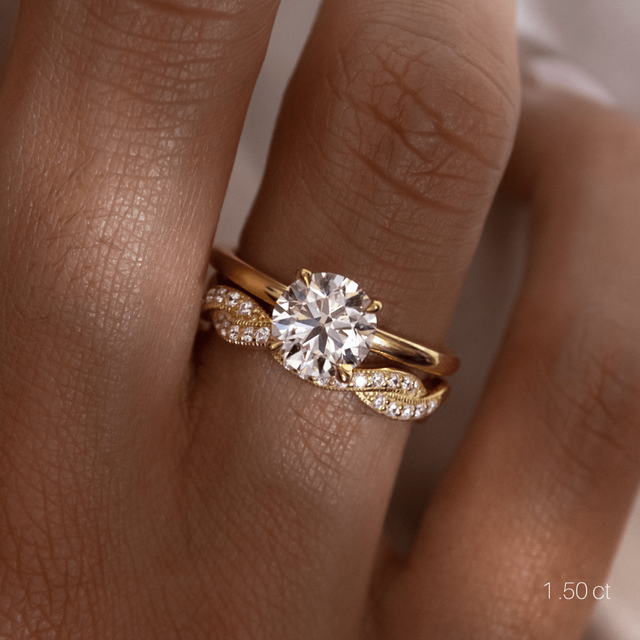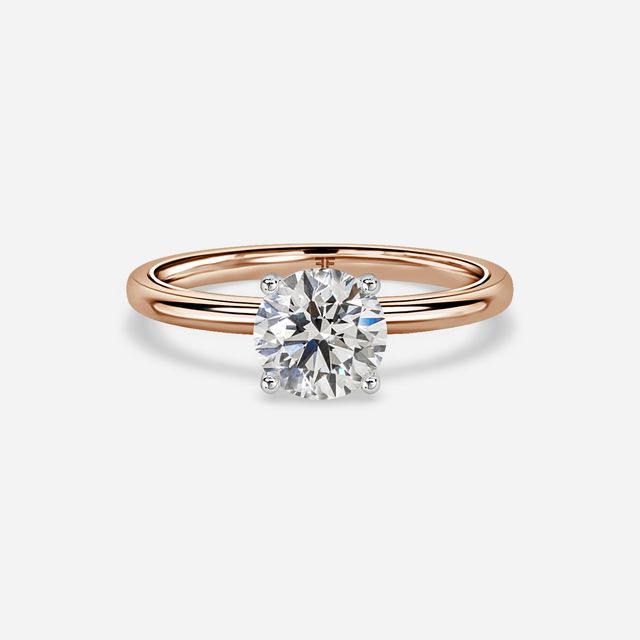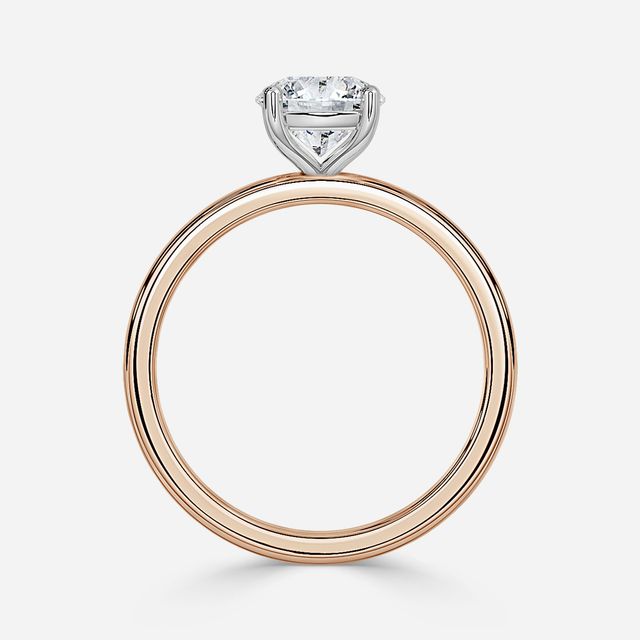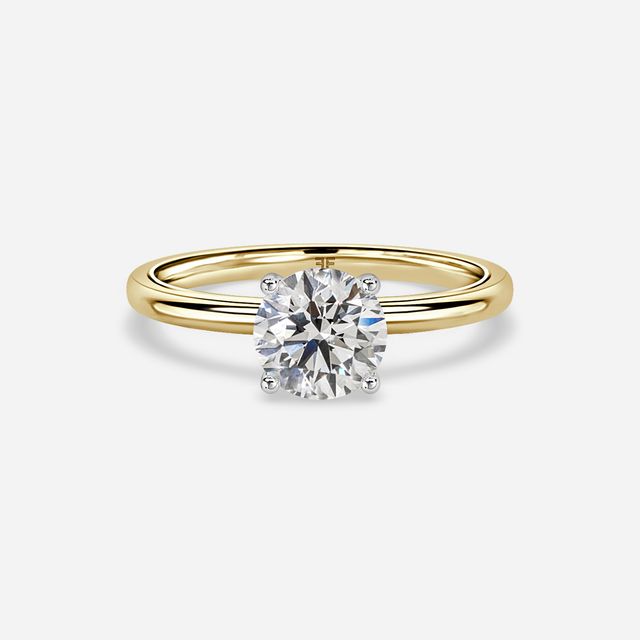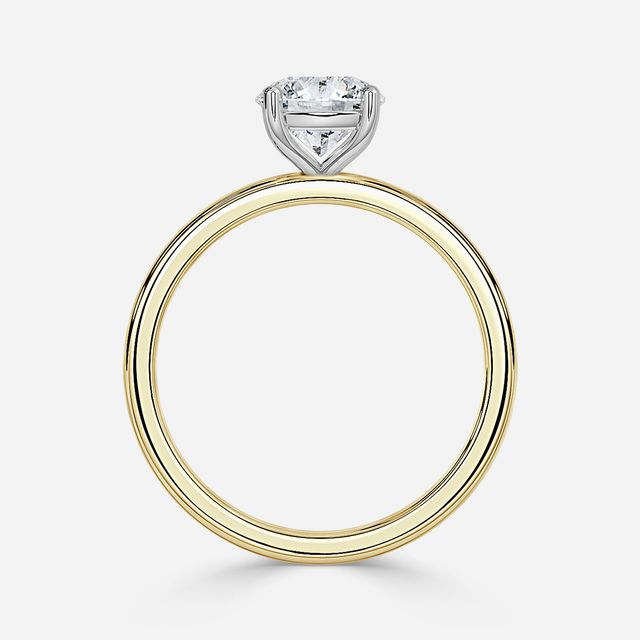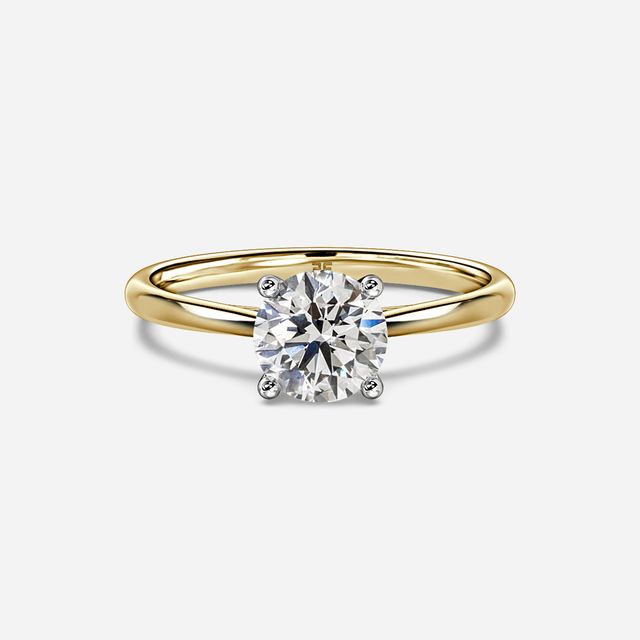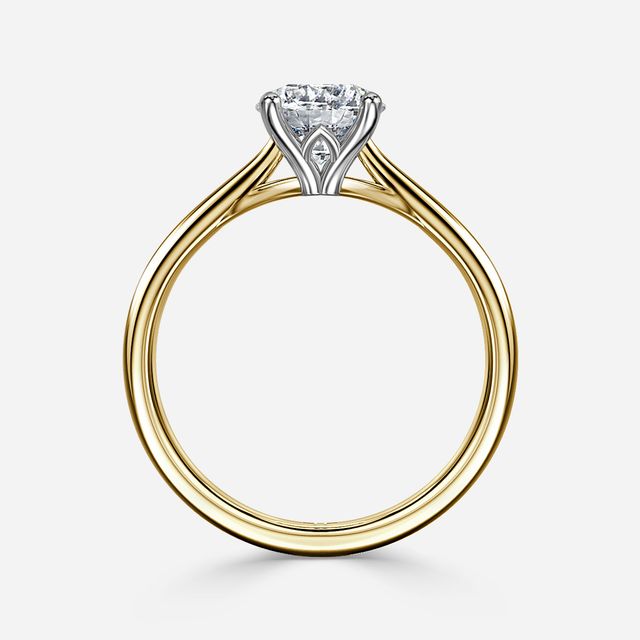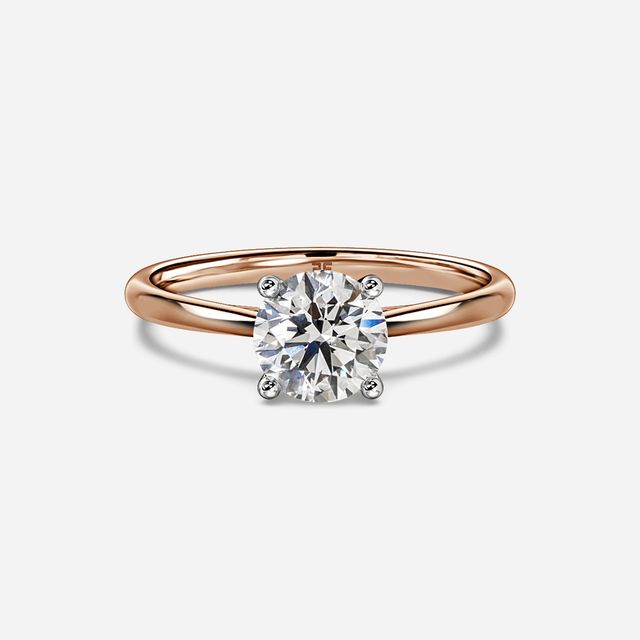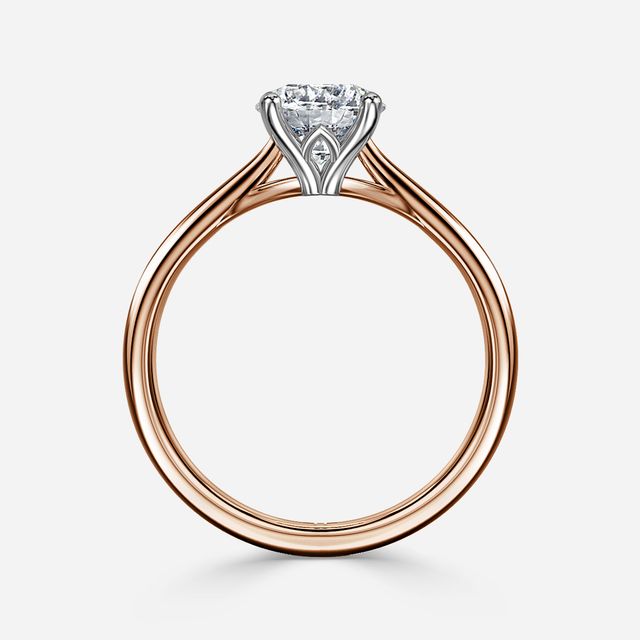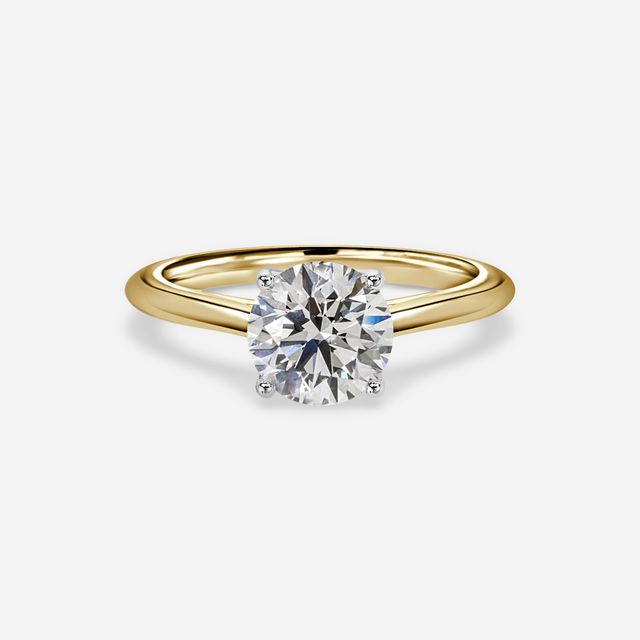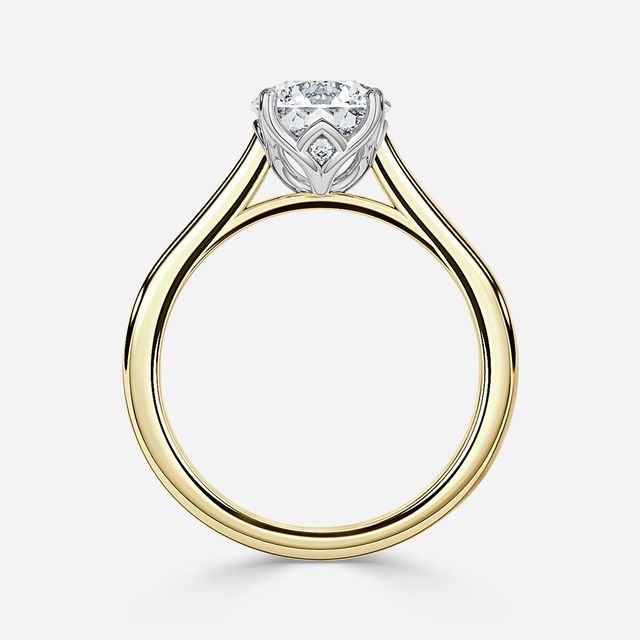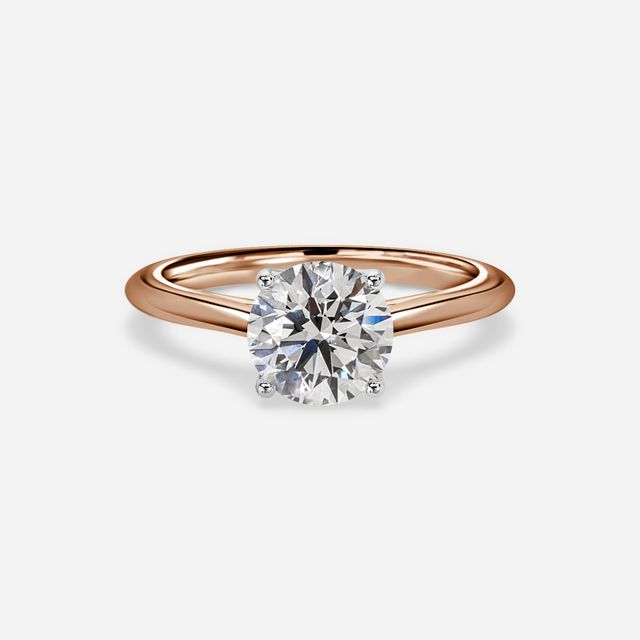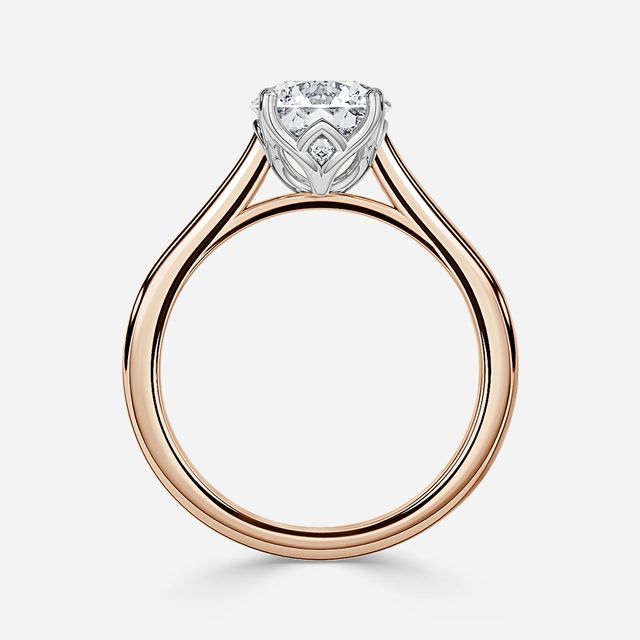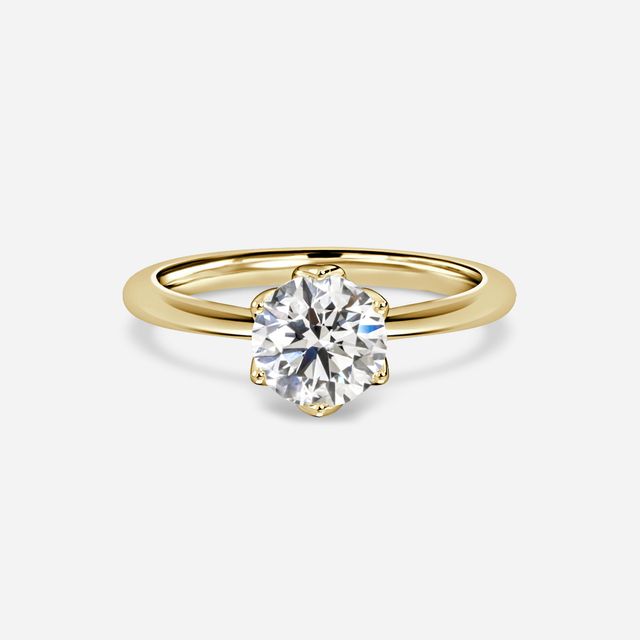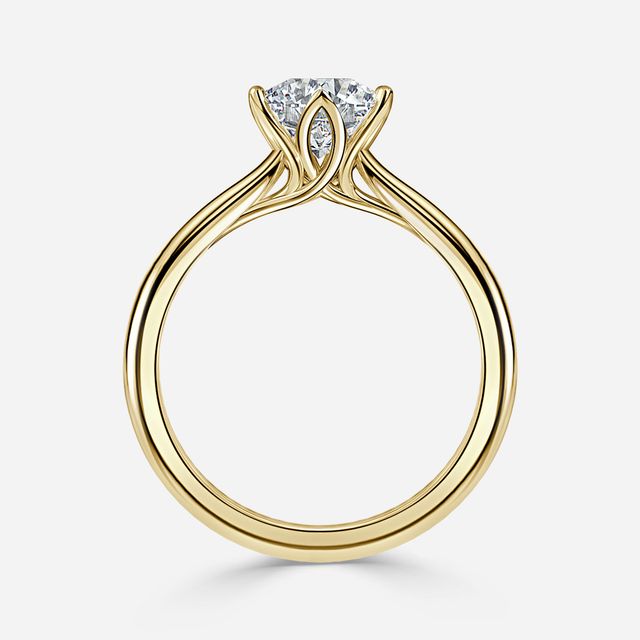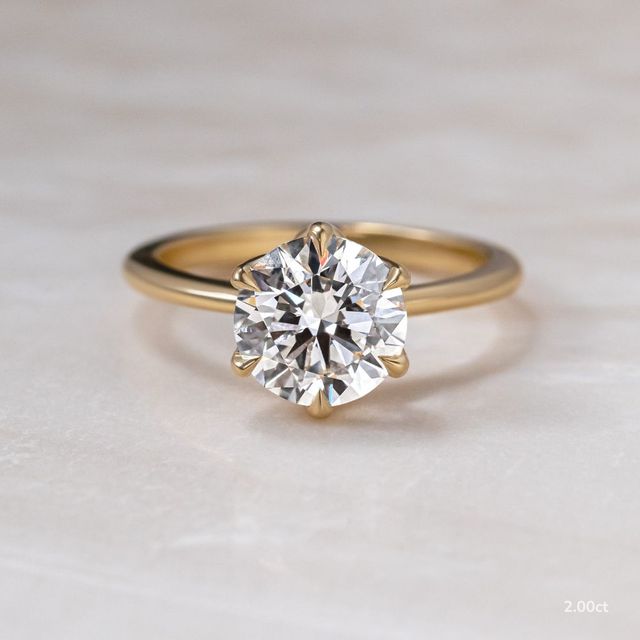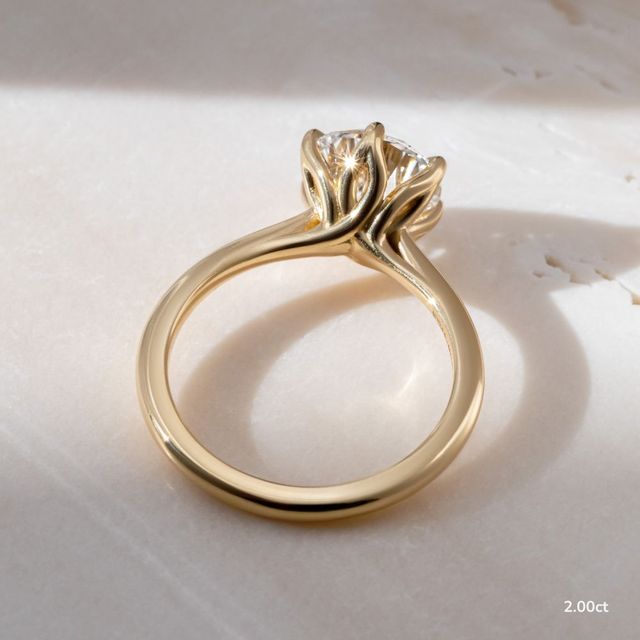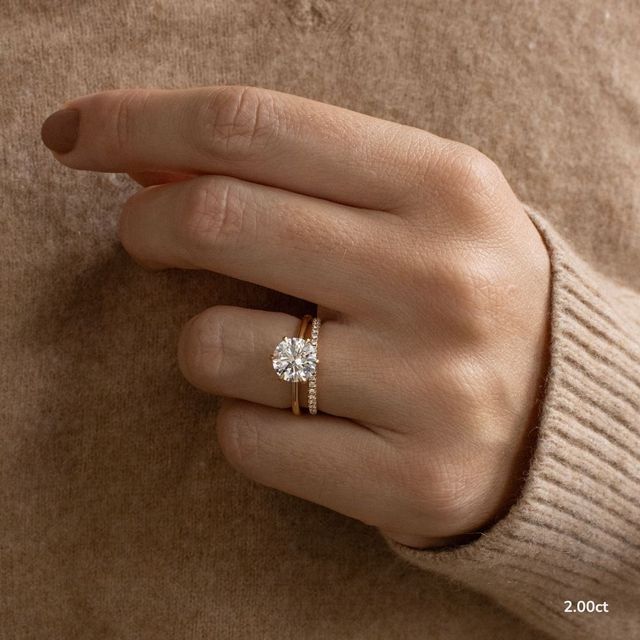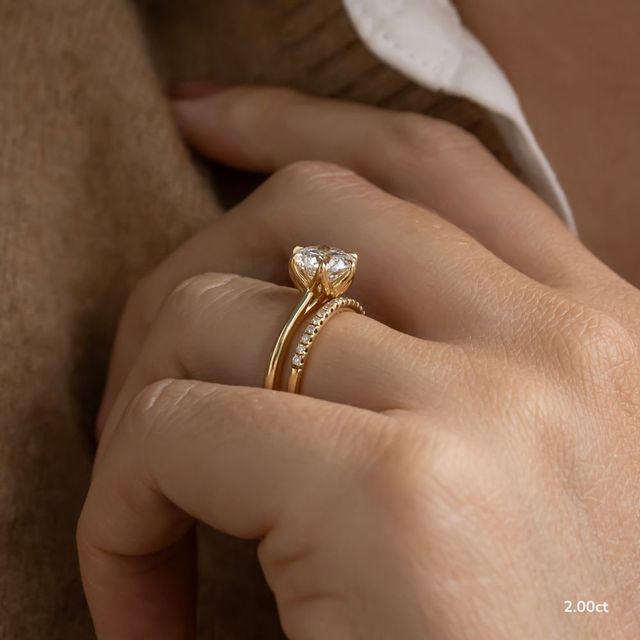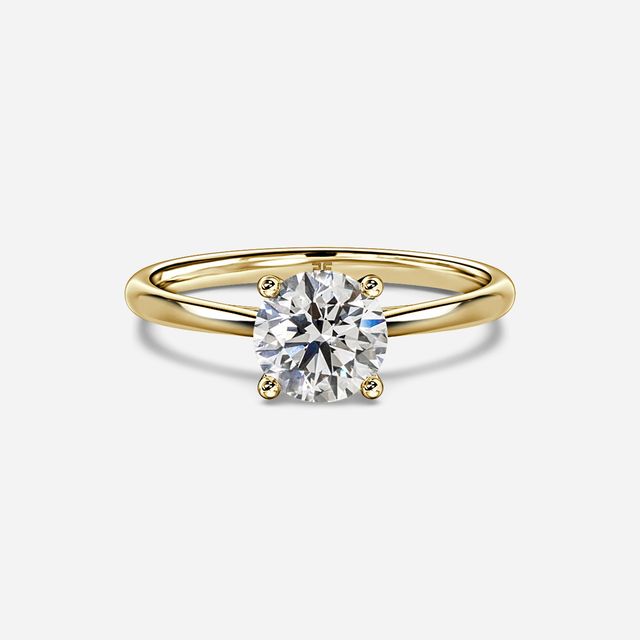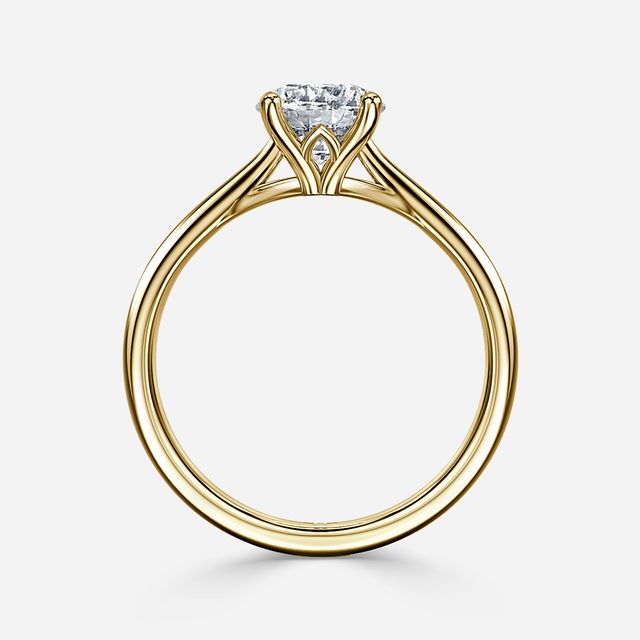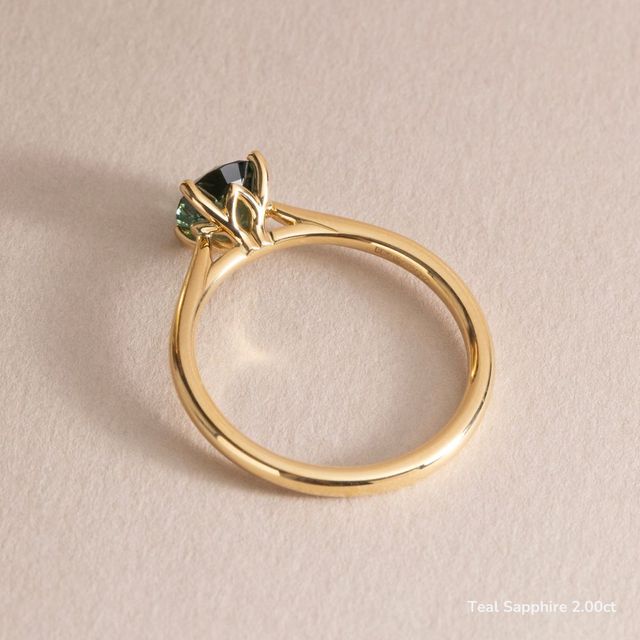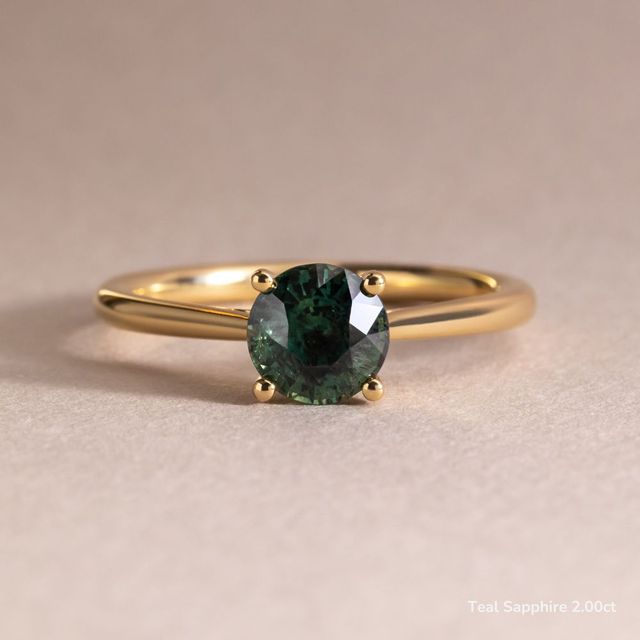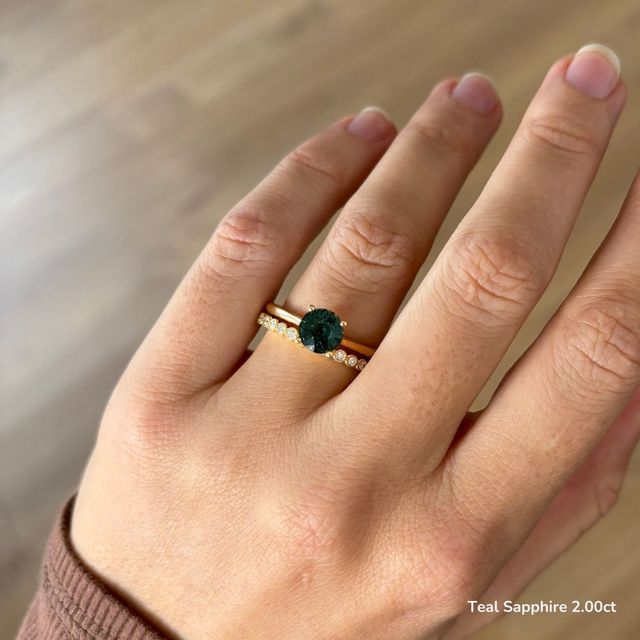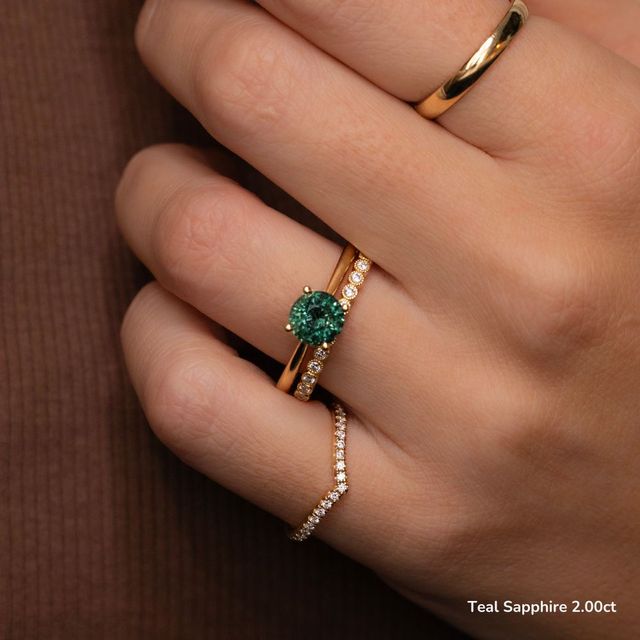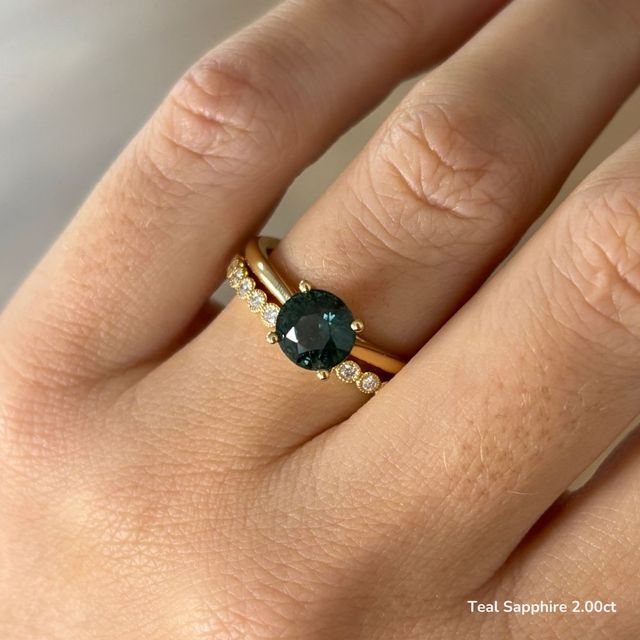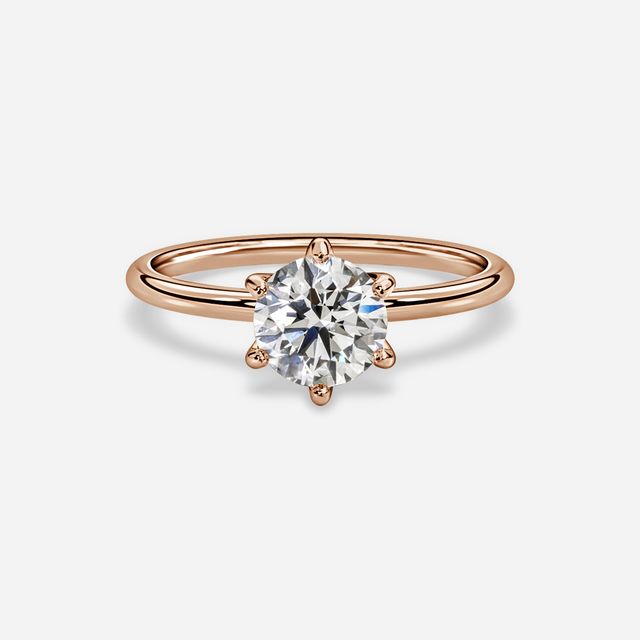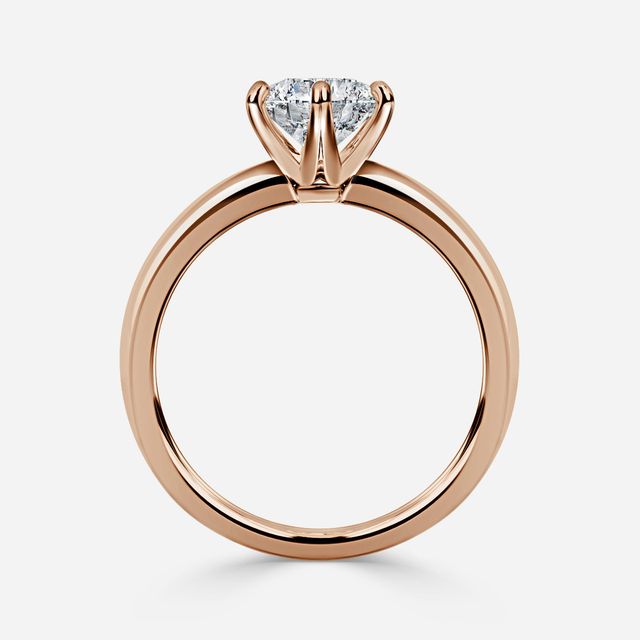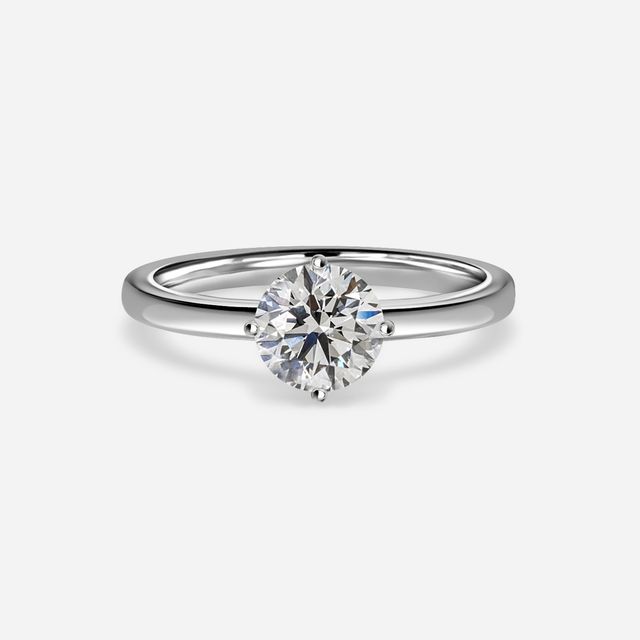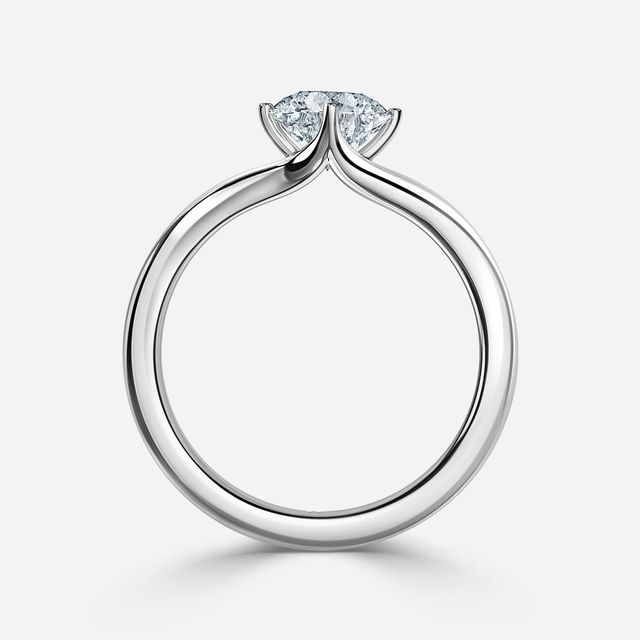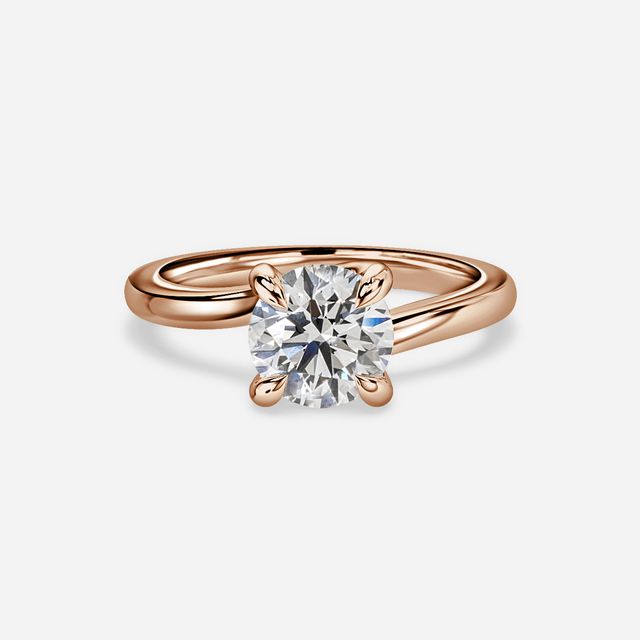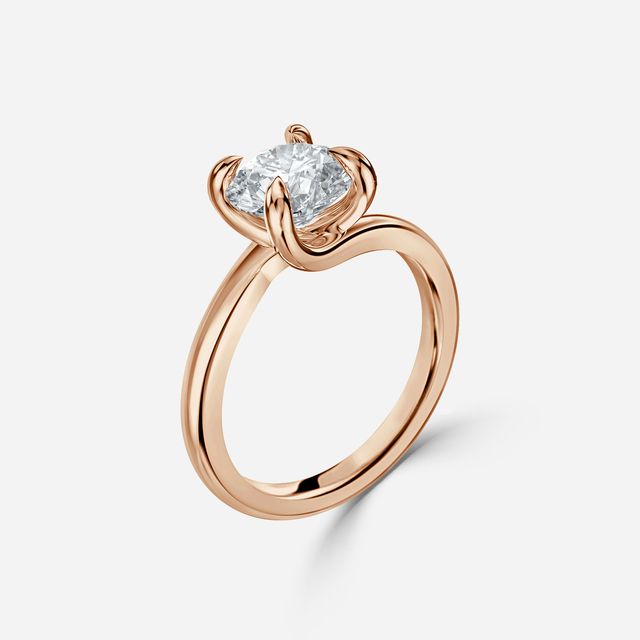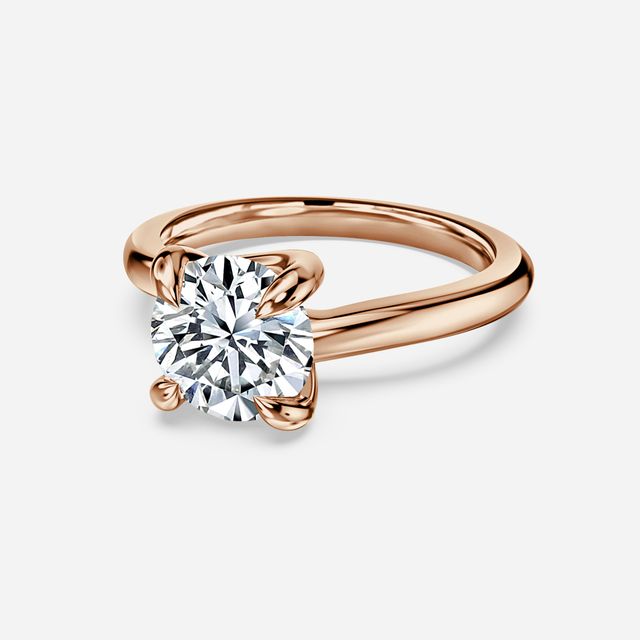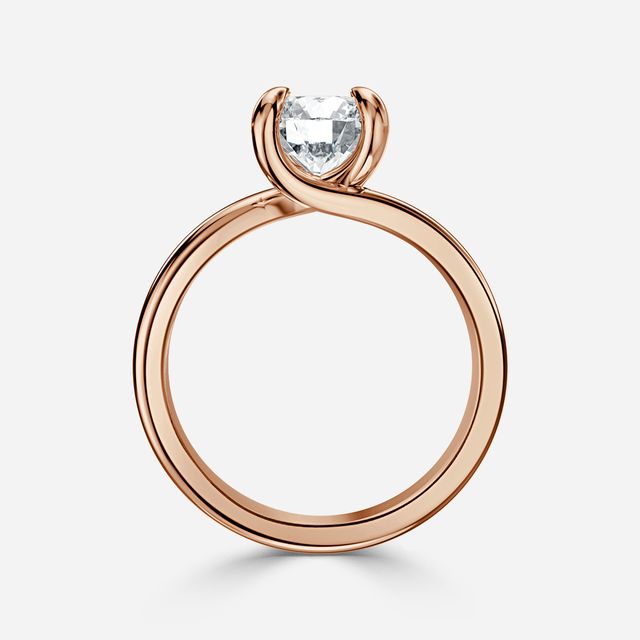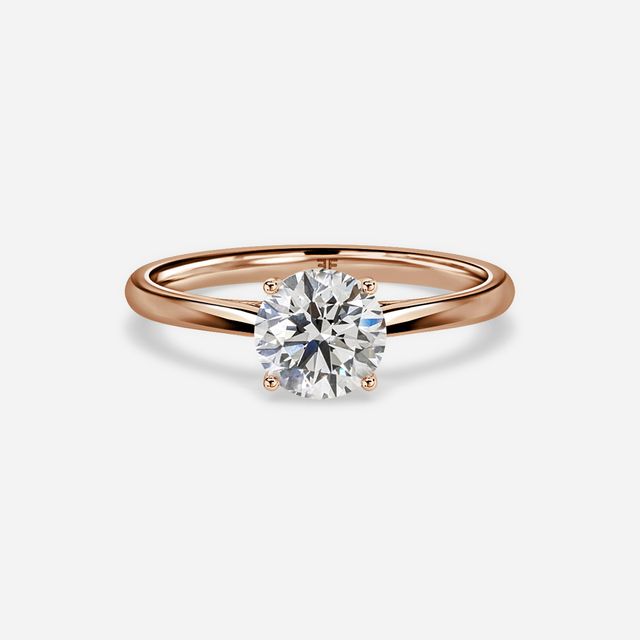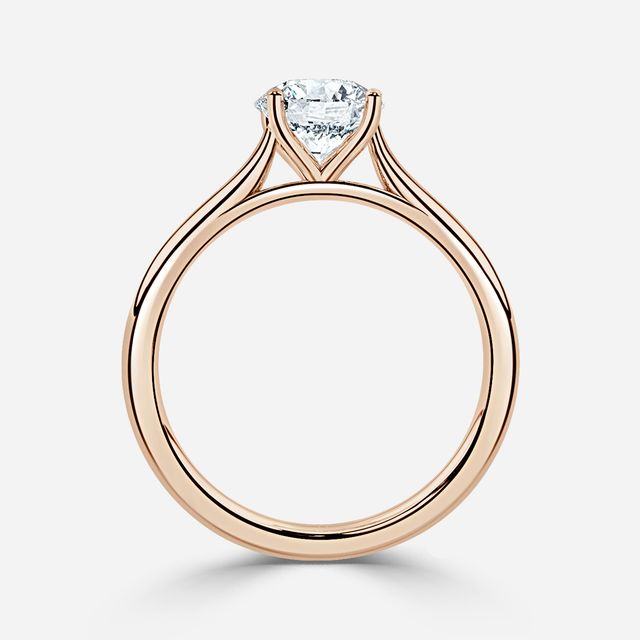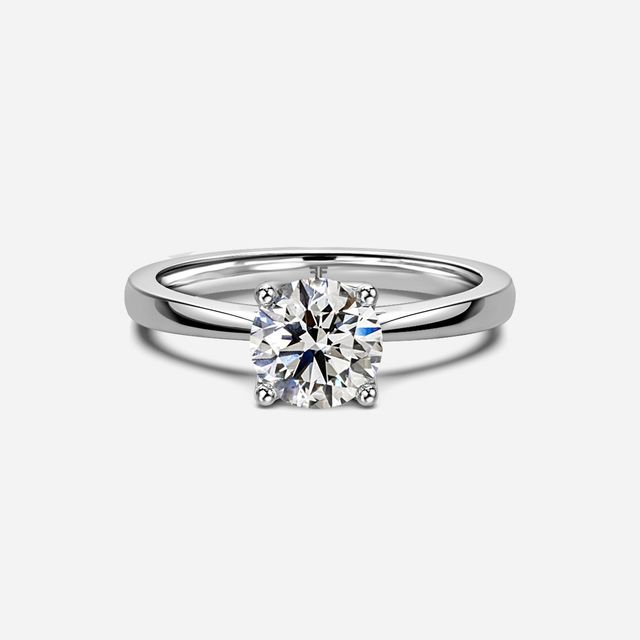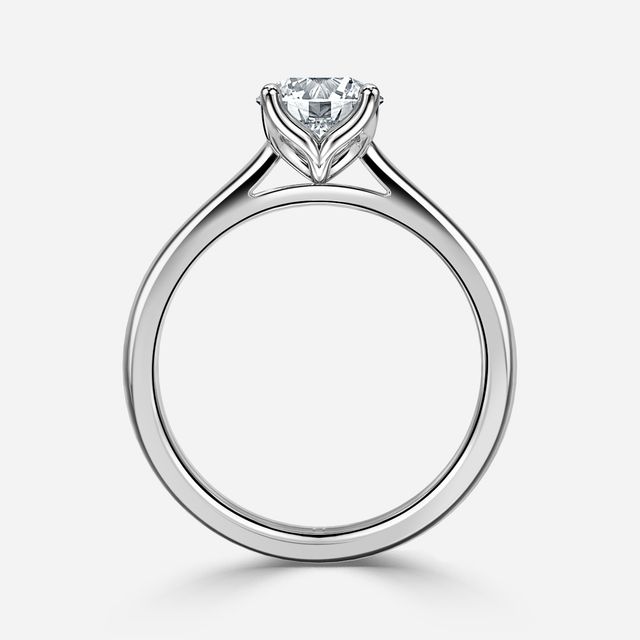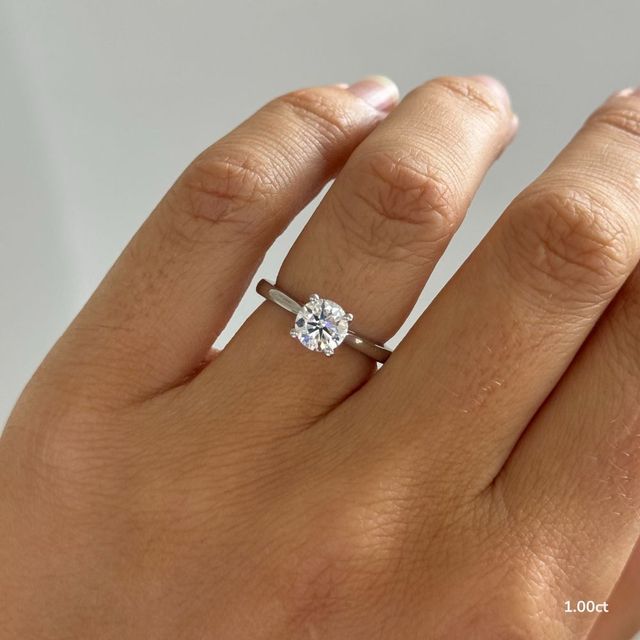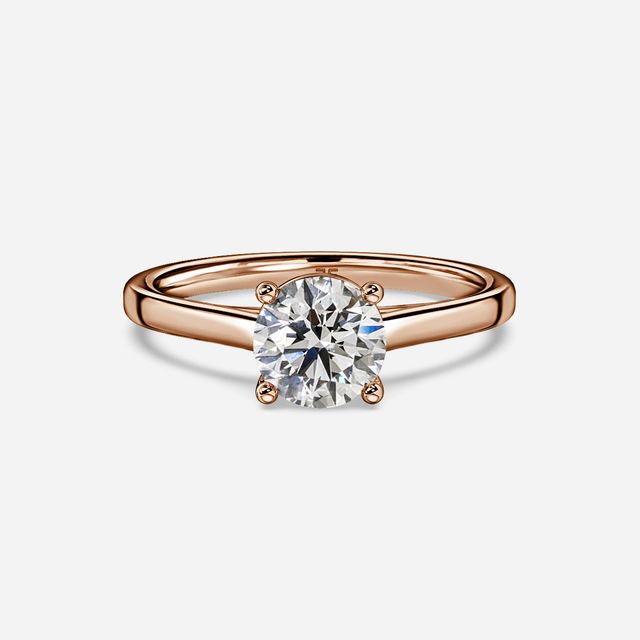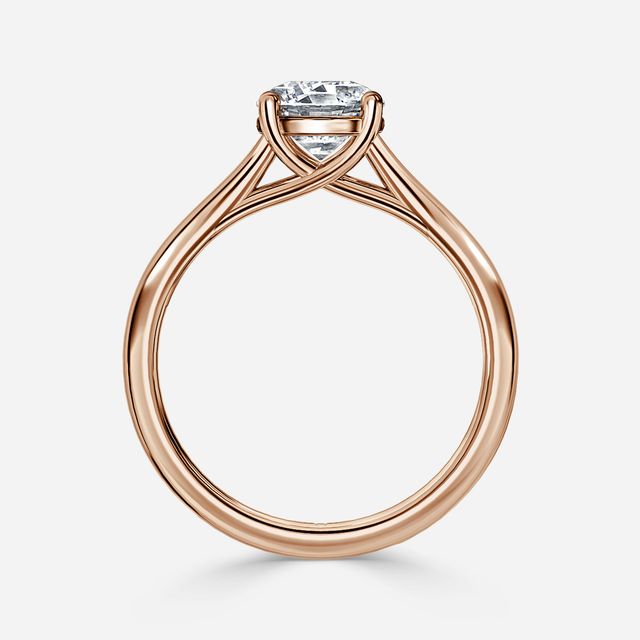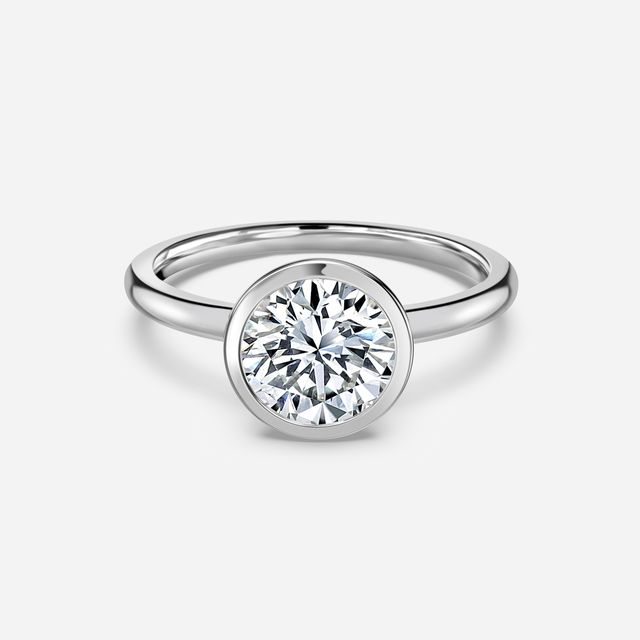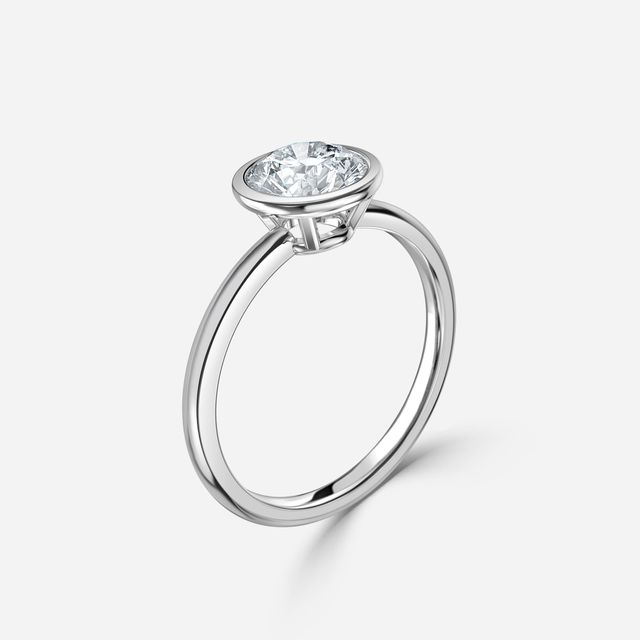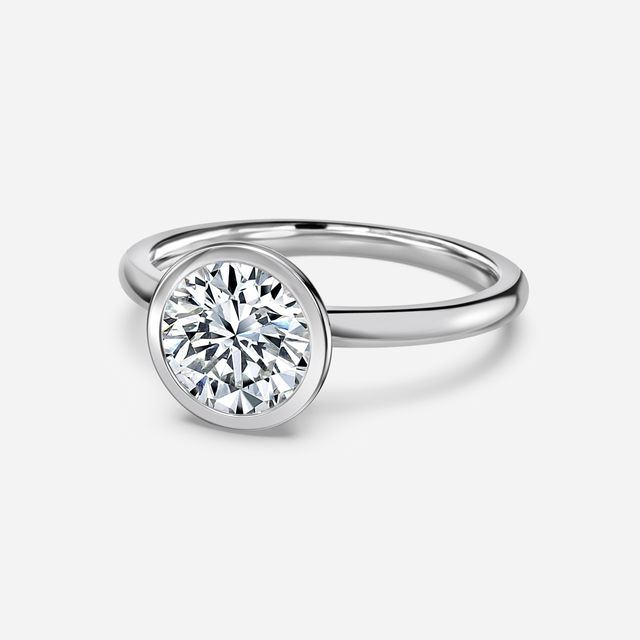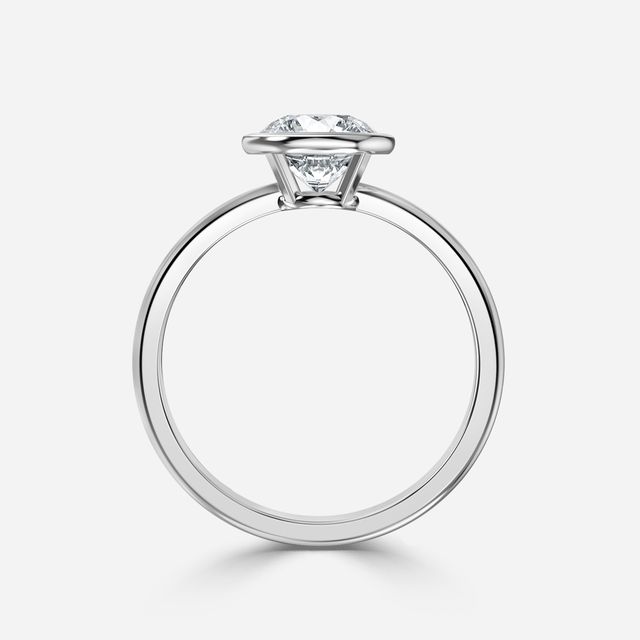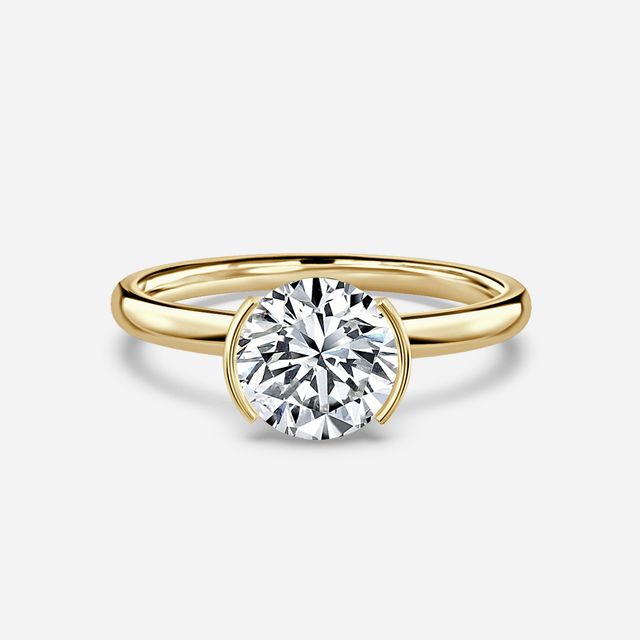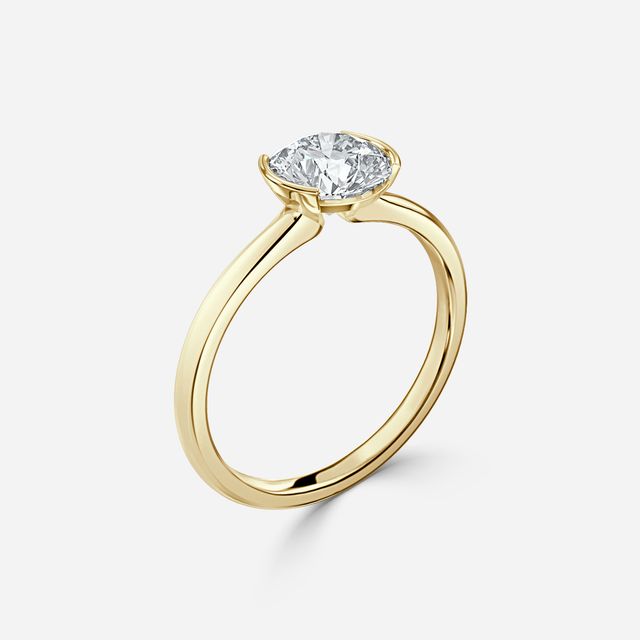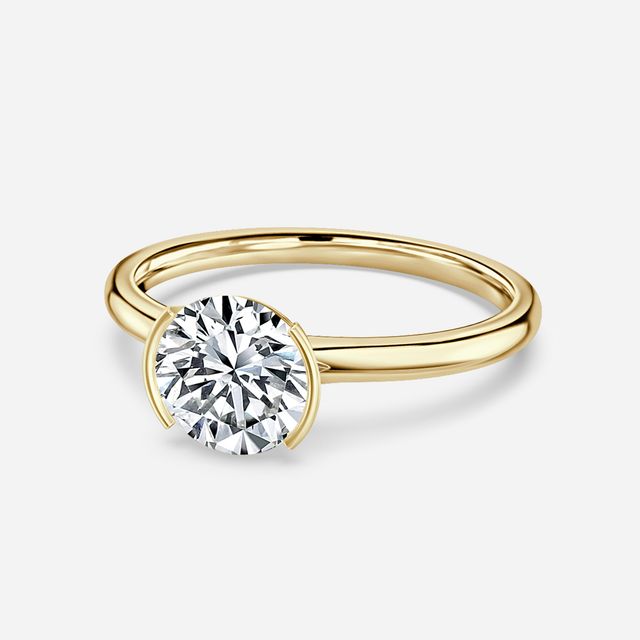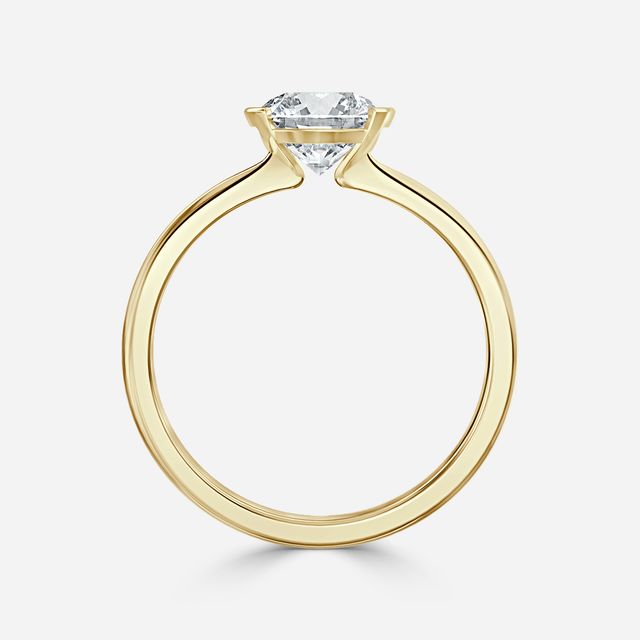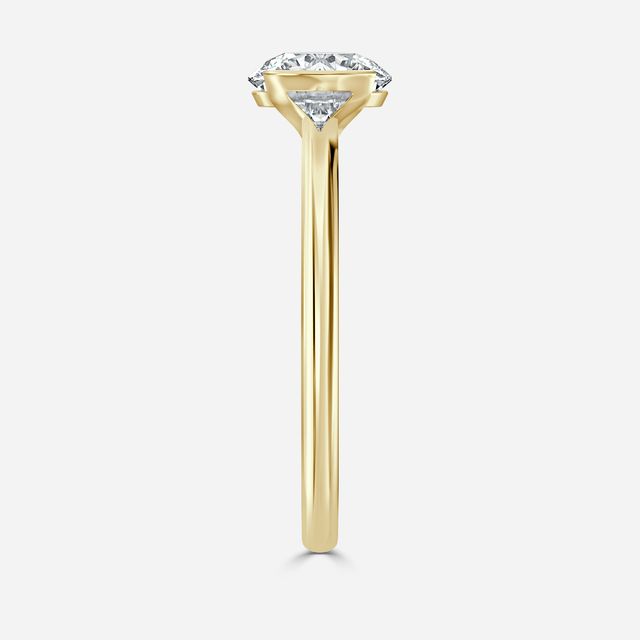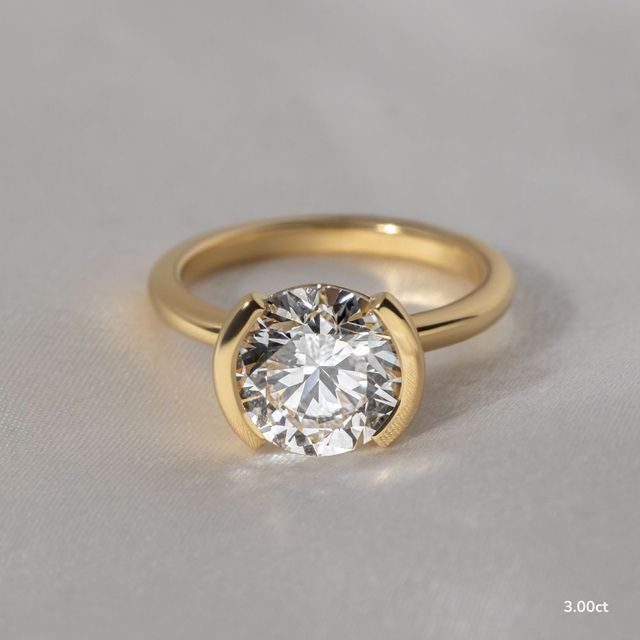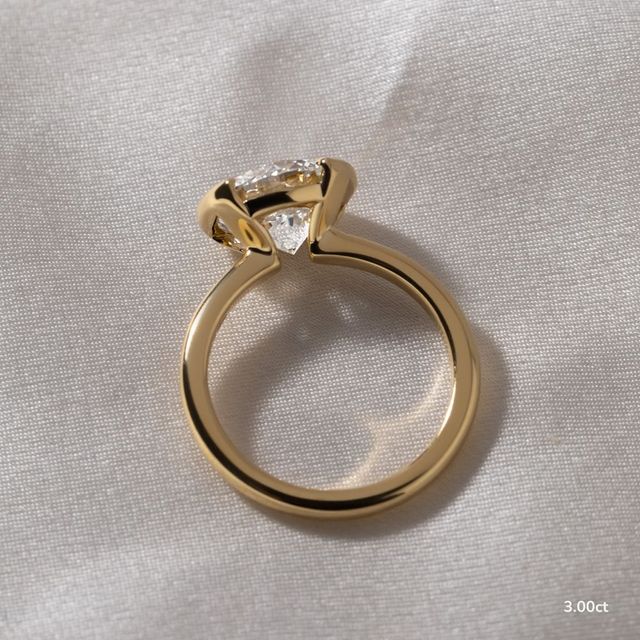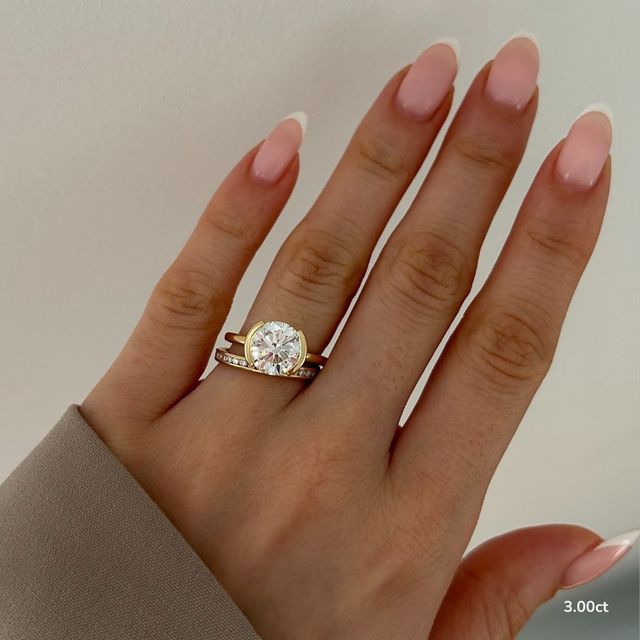Round Solitaire Engagement ring
The Round Solitaire Engagement Ring brings together two of the most classic elements in fine jewellery: the round cut diamond and the solitaire setting. Celebrated for its symmetry and brilliance, this combination continues to define the timeless appeal of the engagement ring. For more options, explore our full Solitaire Engagement Rings collection or discover additional Round Diamond Engagement Rings.
Ask the Jewellery Concierge
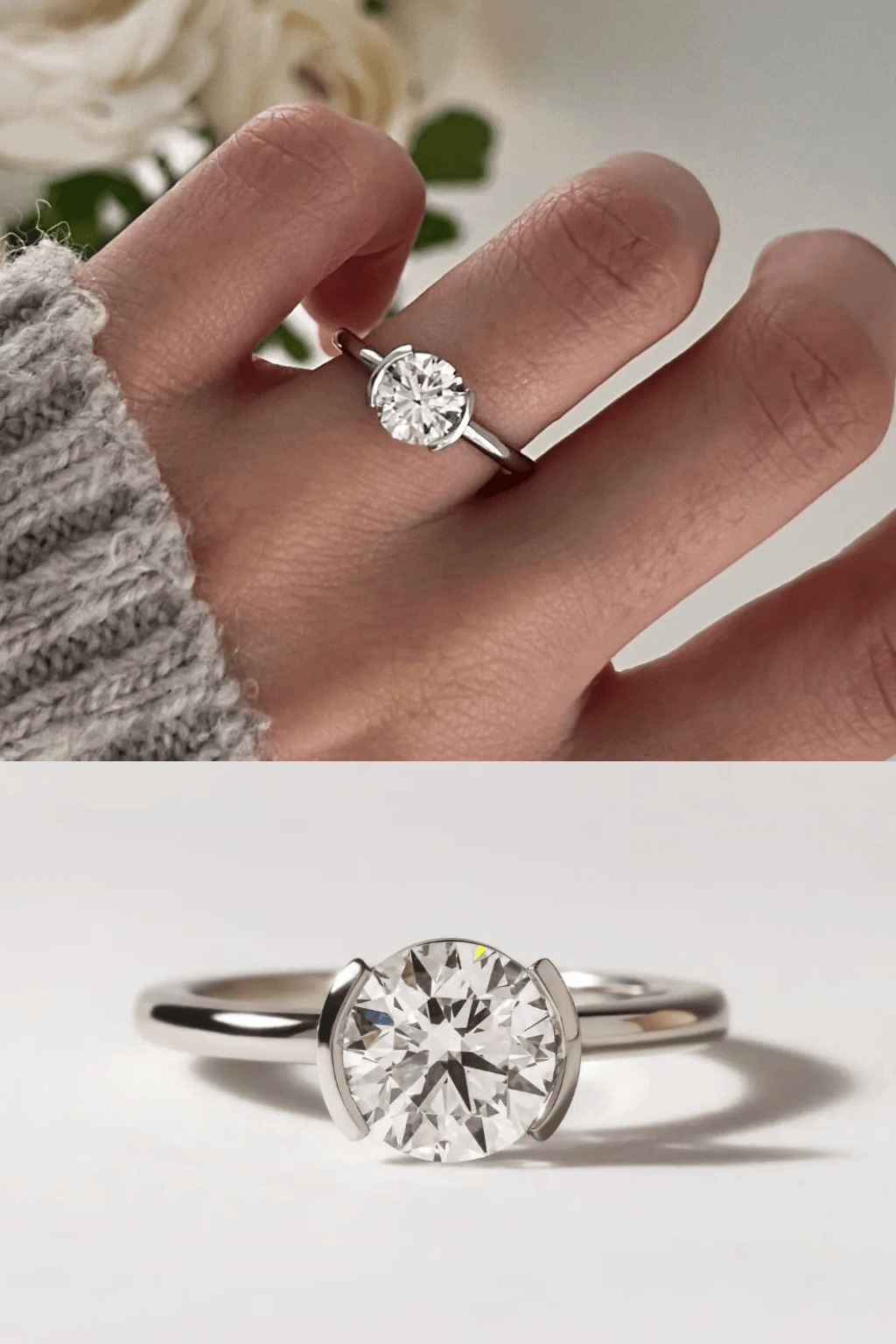
Ask the Jewellery Concierge
Set up an in-person appointment with our experts and find exactly the engagement ring you’ve been looking for. Know the best settings, compare and evaluate all the options before making a purchase.
Our Diamond Experts are Here for You
Why Choose a Solitaire Setting for a Round Diamond?
A round solitaire ring remains a classic choice even after hundreds of years. The solitaire setting allows the round diamond to receive maximum exposure from all angles, with no surrounding stones to block light. The round cut’s symmetrical pattern with 57 or 58 facets gives the strongest return of light to the eye. The simplicity of the solitaire allows accurate assessment of the diamond’s cut, symmetry, and proportions. At Flawless, our round solitaire engagement rings promise to maintain both precision and long-term durability.
Round vs Oval Solitaire Rings – Spot the Difference
Both oval and round solitaire engagement rings are timeless staples for their even proportions and elegance. A round solitaire diamond is usually comprised of 57–58 aligned facets to maximize brilliance, fire, and scintillation. An oval cut comes from the round brilliant, and will offer a bit larger face-up size for the same carat weight. Also, the oval shape may come with a slight “bow-tie” shadow and more color visible at the ends. Both shapes are structurally stable and don’t have any pointed corners but round diamond solitaire engagement ring tend to cost more due to its precise cut and constant demand.
Frequently Asked Questions
What is the ideal depth and table percentage for a round solitaire diamond?
What is the ideal depth and table percentage for a round solitaire diamond?
An excellent cut round diamond has a depth of 59–62.5% and a table of 53–58%. These proportions optimise light return and reduce light leakage.
Which ring settings best secure a round solitaire diamond?
Which ring settings best secure a round solitaire diamond?
Round brilliants are highly versatile and work well in four-prong, six-prong, and bezel settings. Six-prong designs (like the Tiffany-style) provide better protection and symmetry, while four-prong settings allow more light to enter for extra brilliance.
How does cut quality affect the price of a round solitaire diamond?
How does cut quality affect the price of a round solitaire diamond?
Round brilliants waste more rough material during cutting (up to 50%), which most likely increases cost. Prices rise sharply for “Excellent” or “Ideal” cut grades because precision cutting maximises optical performance, a priority for Flawless Fine Jewellery’s quality standards.
Are round solitaire rings suitable for everyday wear?
Are round solitaire rings suitable for everyday wear?
Yes. Their circular outline lacks pointed edges, reducing the risk of chipping. When mounted in a protective prong or bezel setting, a round solitaire diamond maintains its structural integrity even with frequent wear.
